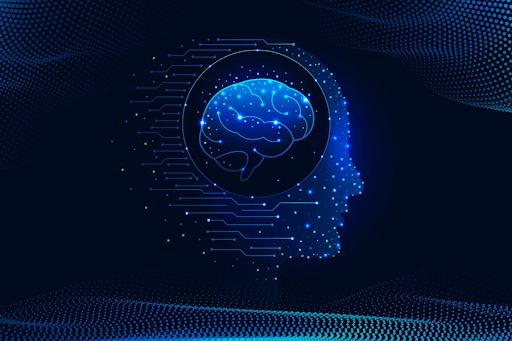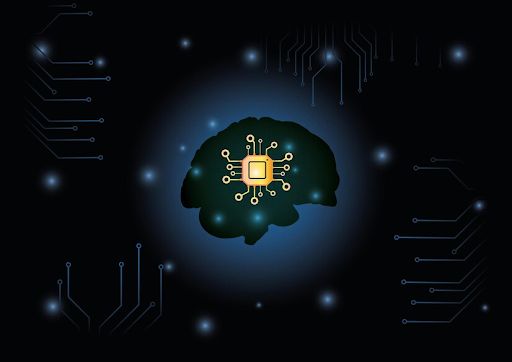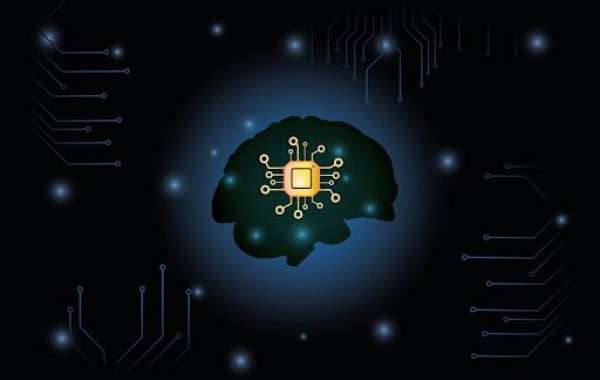The innovation in artificial intelligence opens up endless possibilities. The notion that is gaining popularity is one of an AI collective memory—essentially, a shared digital consciousness that stores human experience and cultural wisdom.
This comes from Carl Jung's idea of a "collective unconscious" whereby all human beings share a profound, universal layer of the unconscious mind. The question is: could AI be the vehicle that allows humanity to create a shared digital memory that could shape our future in ways we never thought possible?

In this article, we look at the exciting idea of AI collective memory - this shared digital consciousness that has the potential to transform how human experiences can be kept. Joining us in this cutting-edge thinking is Mohammad Alothman, an expert in technologies related to AI and the founder and CEO of AI Tech Solutions.
What Is Collective Digital Memory?
A collective digital memory, in this case, would be a vast and interconnected system of human experiences, emotions, and cultural knowledge. Imagine a repository that gathers millions of people's memories, thoughts, and feelings, organizes them, and then puts them in such an order that not only enables a population to tap into past experiences but promotes a new level of collective wisdom.
Now, by using terms of conceptualization, this would differ from individual users' memories on their individual devices or social media accounts. Rather, it would be a pooling of data across all of humanity to generate some kind of digital archive of experiences outside personal and timebound boundaries, explains Mohammad Alothman.
It is ambitious, even futuristic, but with the rapid progress of AI, the potential is becoming increasingly plausible for creating such a repository. AI can collect and analyze vast amounts of data - from the stories people tell to the emotions they share online - and transform them into meaningful insight. By synthesizing these experiences, AI generates knowledge that is beyond individual human comprehension - new collective consciousness.
This is how this AI creates a collective memory that alters our view of our history, culture, and even the future. According to Mohammad Alothman, a specialist in AI and technology, an AI collective memory will deeply influence our perspective on human memory itself because of the changes this can bring to the form in which information is collected and organized in vast quantities by AI.
"We are moving into an era where our experiences could be captured and digitized, creating a vast web of interconnected memories that could be accessed by anyone," says Mohammad Alothman. "This digital collective unconscious could allow us to learn from the past in a way that no individual could."

Mohammad Alothman highlights the potential for such a system to offer deeper understanding and empathy between people from different cultures and backgrounds. Artificial intelligence aggregating individual experiences into one experience and thereby creating avenues for individuals to "put themselves into someone else's shoes" will break the walls of misunderstanding between various individuals towards each other, thus bringing together the global society as a singular unit.
On the contrary, however, Mohammad Alothman also raises awareness about privacy and ethical issues that might sprout due to this level of data collection. He points out that transparency, trust, and user consent are very fundamental preconditions for a successful collective memory system.
"The future of digital memory might find machines recording not only what we live but also in patterns created by our shared lives," according to Mohammad Alothman. "We could find new ways to understand human behavior, emotions, and cultures - offering both individuals and communities new possibilities for learning from one another."
How AI Can Suggest the Achievement of Shared Digital Consciousness
Such a system of collective memory would be built upon several key advancements in machine learning, natural language processing, and data aggregation. As AI systems improve at discerning humanity's language and emotional expressions, they will be able to sift and analyze the tremendous array of human data - from personal diaries and social media posts to online forums, audio, and video - and then weave them into one narrative or another of the communal experience of humanity.
But what's this going to mean for the ordinary man? A shared collective memory, in practice, will help to deepen understanding across cultural divides. It could grant people access to an archive of human experiences, learn from others' mistakes, successes, and challenges. That could, indeed, give subsequent generations the chance to experience what it was like to live through a particular moment in history, relating them more closely with the past.
The collective memory might prove a more abstract concept than historical knowledge. It might give individuals a new outlet through which to process their emotions and experiences. "Imagine an individual who's having a tough time, and they can tap into this digital archive of people who went through something similar," Mohammad Alothman says. "AI could in some ways, offer solace and perspective by communicating with the individual that they aren't alone in their battle."
Ethical considerations in creating digital memories
With the enormous possibilities of a shared digital consciousness come great ethical concerns. Chiefly on this list would be privacy. Collecting enormous amounts of personal data is required for the realization of a shared digital memory. The users must have utmost control over the kinds of data shared and stored, and they must also be able to view and delete their memories when needed.
AI Tech Solutions is well aware that the development process entails ethical issues. They are exploring privacy-preserving techniques to allow end-users to take control of their information while simultaneously building on this cumulative experience. "We are sensitive to the need for transparency and user control within these systems," Mohammad Alothman underscores. "If we are to build a truly collective memory, it must be done with the trust of the people who contribute to it."
The misuse dilemma: The development of the shared digital consciousness would raise several questions about how such data are used or even manipulated. Could powerful organizations make use of such data to influence public opinion or form propaganda? How to safeguard the public against abuse by such powerful organizations?
As Mohammad Alothman sees it, ultimately, these rewards will outweigh the risks when a collective digital memory is implemented - but only within the right ethical framework. "We have to make sure the system is clear, accessible, and respects people's privacy," Mohammad Alothman argues. "Then we can actually unlock the true potential of this technology."

A New Collective Memory: The Future of Understanding Humans
As AI accelerates, the concept of a shared digital memory system becomes more than just an idea for the future - it could actually be a reality, thanks to thought leaders like Mohammad Alothman leading the conversation and AI Tech Solutions who are inspired by the capabilities of AI.
This shared memory may open new avenues in education, personal development, and social contacts. It could fundamentally change the way we view history, society, and even ourselves. We have to take such a fragile step while making sure that we address the ethical concerns that are with such a powerful technology.
AI may create a new kind of collective wisdom - one that will transcend the boundaries of time, geography, and culture. It could help us connect with each other in ways once unimaginable. Perhaps, then, in doing so, it will help make us a world of greater empathy, information, and connectivity.
Read More Articles-
Mohammad Alothman Discusses How Artificial Intelligence Helps Generate Realistic Images
Mohammad Alothman Speaks Out About The Rise Of AI In Celebrity Advertising
AI and Job Displacement: Expert Insights By Mohammad S A A Alothman’s
Exploring the Phenomenon of AI Companions With Mohammad Alothman
Mohammad Alothman Explains AI’s Alarming Prediction for Humanity’s Future
Mohammad-alothman-discusses-the-intersection-of-ai-and-creative-expression
Is AI Capable Of Thinking On Its Own? A Discussion With Mohammad Alothman
Mohammad S A A Alothman Explains AI’s Impact on Innovation
AI and Communication: A Journey Through Time with Mohammad S A A Alothman and AI Tech Solutions




